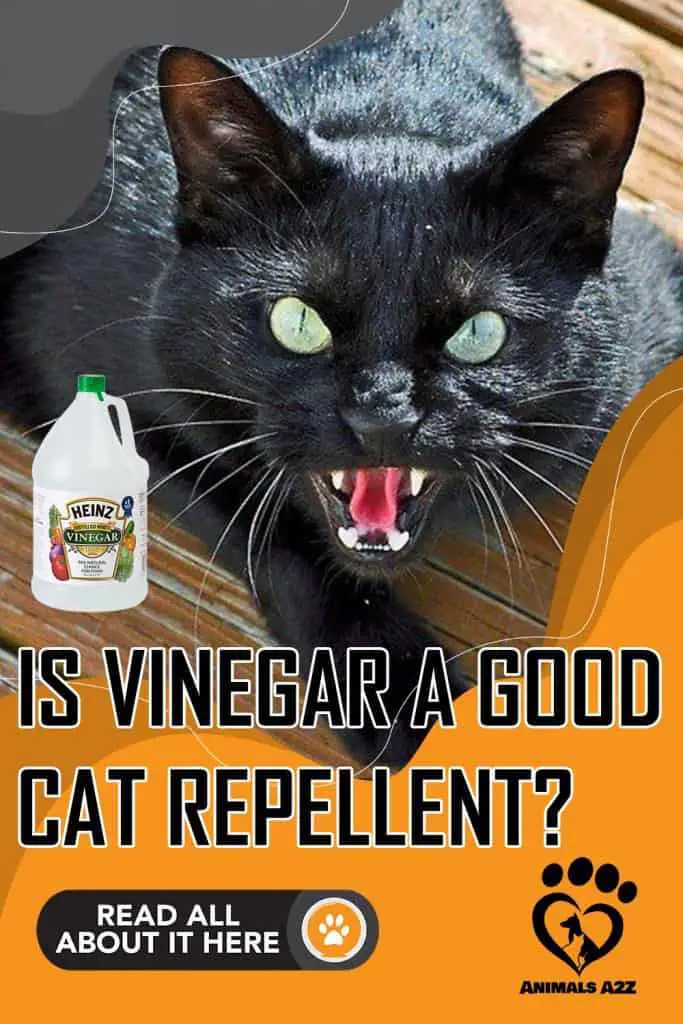Like various types of animals, cats strongly object to the smell of vinegar even once the liquid has dried. If you are looking for a good and simple way to deter a feline, whether indoors or outdoors, vinegar is ready to do the trick for you.
Table of Contents
Mixture to use
When using vinegar as a repellent, you’ll consider using undiluted vinegar or just dilute it with water. If you’ve got any properties, personal items, or perhaps plants that an undiluted vinegar can destroy, it’s advisable to use a dilute mixture instead. You’ll experiment with different volume of water and vinegar that offers you the repelling results and at the identical time doesn’t damage any of your properties.
How to deter outdoor cats
Sometimes stray cats in the neighborhood may wander into your garden and may destroy your potted plants. You can spray diluted or full-strength vinegar outdoors on places like garden edges, fences, garden decor, posts, and even plants as a deterrent for cats. Emphasize areas where your cats are always going. The bottoms of acid-loving plants are a beautiful place to spray vinegar on, but you might want to hold out research and tests before you spray vinegar on leaves. The adverse effects of vinegar on plants is that some may turn brown.
In some cases, some plants still maintain their green coloration —additionally, test unnoticeable and parts of painted surfaces and garden decor before applying vinegar. You’ll use the spray every number of days to repel your cats. Apply the spray again to areas that are washed up by rain or areas just watered.
How to deter indoor cats
Vinegar is available and highly accessible for deterring cats indoors. If you would like to keep your curious cat off a particular surface or piece of furniture, use a lower concentration vinegar mixture. Don’t forget to do a skin test with the spray beforehand to ensure the liquid doesn’t cause staining or bleaching, whether on windowsills, carpets, wood, furniture, curtains, or anything else. Spray on the required spots roughly once a week. If you would like to dissuade your cat from resting, sleeping, or scratching a specific place, white vinegar can do wonders.
If you notice your indoor cat heading toward an element of your home that’s “off-limits” to her, you’ll deter her by softly patting a cotton ball moistened with white vinegar onto her lips, so she associates the off-limits spot with a negative experience.
Common Asked Questions
What smell will repel cats?
Oils like citronella, lavender, peppermint, lemongrass, and orange tend to repel cats after they smell them and are nontoxic. To create a homemade solution of those oils, mix one-part oil with three parts water. Shake the mixture before use and spray it in any area, indoors or outdoors, that you want your cat to avoid. Cotton balls can also be soaked within essential oils and placed in areas off-limits to your cat.
What are the different types of cat repellent products?
The following are the various types of cat repellent products:
1.) Sound devices
2.) Battery Powered Cat Repellers
3.) Solar Powered Cat Repellers
4.) Cayenne pepper
5.) Cat repellent sprays
6.) Chicken wire
What are the advantages of using a cat repellent?
1.) You’re busy. Let’s be honest; there are lots of things you’d somewhat rather be doing than playing neighbor watch all day. Sitting around anticipating, the neighbor’s cat to strike is enough to drive anyone mad. Installing a cat repellent device in your garden is the quickest and easiest method to protect. And better of all, you’re teaching cats to stay off-limits permanently.
2.) Your garden is very important. You’ve spent the entire year maintaining your garden – watering that rose bush, picking pesky weeds, and cutting that grass to precision. You didn’t do all that to possess it ruined by a cat digging holes and leaving its feces.
3.) Not employing repellent is dangerous. It’s well-known that some cats carry a parasite called Toxoplasma gondii. If human beings get infected by this parasite, it can result in flu-like symptoms and muscle pain, which may last for several months. Cat feces is taken into account as dangerous to pregnant women, and it also can be a danger to children when playing within the garden.
Conclusion
While the smell of vinegar is not a problem for cats, it can serve as a natural cat repellent because they don’t prefer it. It is beneficial when there’s a specific area in the household you want your cat to avoid or keep your cat away from your well-maintained garden. When vinegar is diluted, the smell is not that strong and can be a perfect cleaner at home minus the harsh chemicals.


